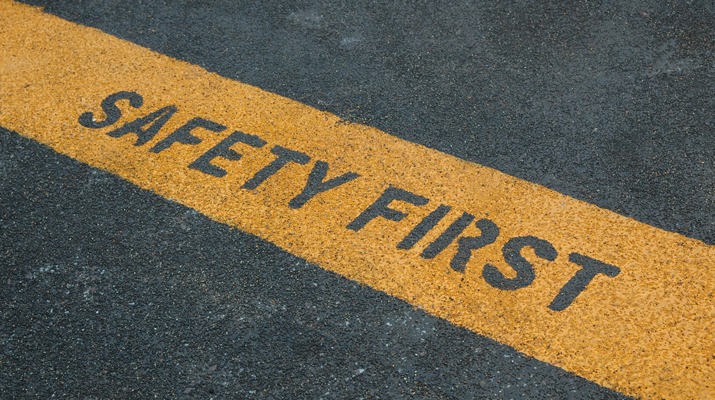A safety conscience must be exercised
Call them gremlins, shoulder angels or devils, leprechauns, fairies or elves – it is the weight our conscience that determines the choices we make every day.
 Jay Johnston |
In our personal and professional lives we rationalize choices with regard to our conscience. As we justify ends and means, we shrug our shoulders and say about our conscience, “He ain’t heavy, he’s my brother.”
Conscience is the awareness of moral right and wrong of one’s own acts and motives. When it comes to safety, there is weight in those words. Morality has always been the bastard child of business philosophy. In today’s society we define morality subjectively based on the risk, reward or consequences.
One recent example of safety conscience was the newly proposed OSHA ergonomic bill, which has since been diluted, disputed and pushed to the back burner. Operations feasibility stopped hard, like a horse that refused to go over the fence. “You want us to what?” “Do you understand the cost?” “Who will pay for it?”
After months of politicizing, the original concept has been watered down to operations standards. Hopefully in the process, voluntary standards were adjusted to meet the unique physical requirements of propane marketer employees. For example, we know that knees and backs and lifting are the main exposures for work-related injuries in the propane industry. Marketers with a safety conscience will continue to monitor and address these concerns without the pressure of regulatory mandates.
Another area of safety conscience is making sure customer systems are up to code. While insurance companies have pushed for compliance, some marketers have found wiggle room by applying standards designed for older systems to fill compliance quotas by applying those standards to new installations.
The angel on the shoulder says, “Do the Gas Check or equivalent, change out older equipment based on manufacturer’s recommendations and make sure each system is up to code compliance.” The devil on the other shoulder says, “If you push the customer to fix the equipment, they will just go to an evil competitor and then some marketing bean counter will beat you up about losing market share for the month. How much do you like your job?”
What the devil fails to mention is that an incident in this situation could cost the company a million dollars. If it came up for discussion he would say, “The odds are in your favor.”
The employee might get a pat on the back from the safety director or his insurance company, followed by a boot in the cajones from marketing and operations regarding lost gallons. It appears to be a tough choice, until you think outside the box and become aware of your choices after an incident. Your knowledge and actions then become part of legal scrutiny.
The choice of conscience – the moral choice – is to sell the customer on the value of safety and compliance. After that it simply is an exercise in following company policy on systems not up to code.
Bob Dylan once wrote in the song “All Along the Watchtower”:
No reason to get excited
The thief he kindly spoke
There are many here among us
Who feel that life is but a joke
But you and I have been through that
And this is not our fate
So let’s not talk falsely now
The hour is getting late.
When it comes to achieving safe growth, it is our inactions filtered through our conscience that can dictate the preservation of life as well as the protection of corporate assets. Right shoulder or left shoulder, you choose the part of your safety conscience that would benefit from exercise. Maybe it’s time for a wrestle.
















